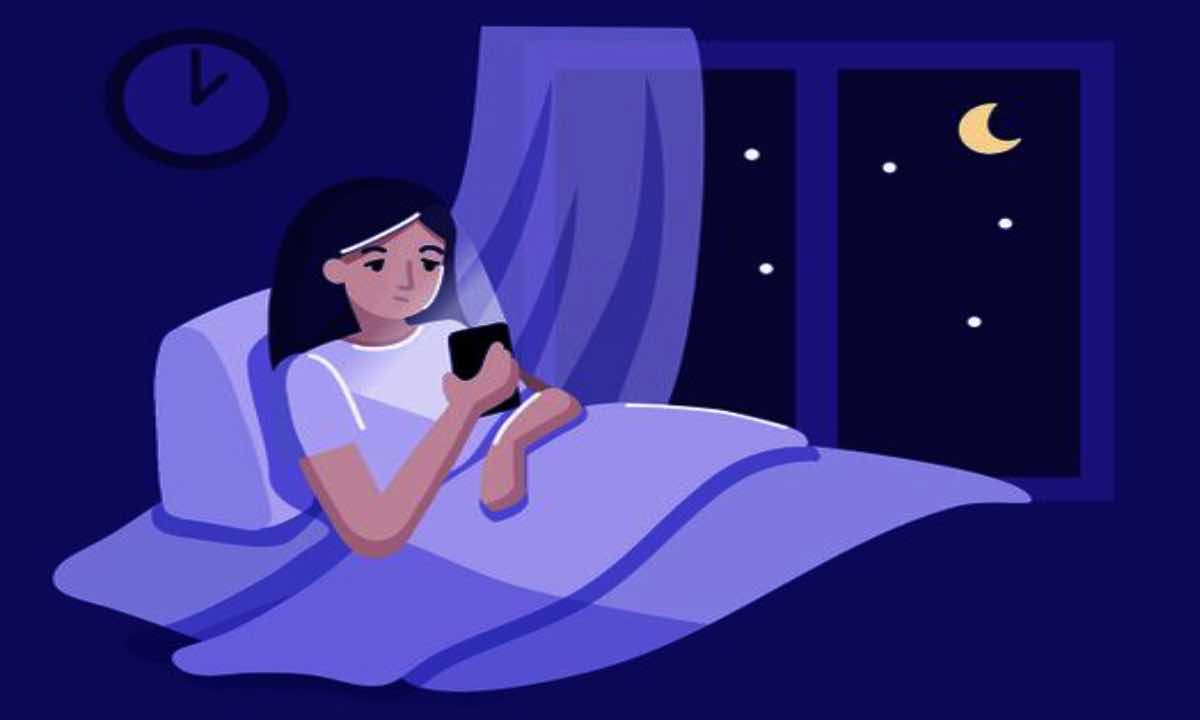
OR
#OPINION
The Revenge Bedtime Procrastination: Lethal Digital Entertainment
Published On: April 5, 2024 08:30 AM NPT By: Fr. Augustine Thomas, S.J.


Fr. Augustine Thomas, S.J.
Father Augustine Thomas has a PhD in ‘Leadership Studies in Organization Development’ and currently serves as the Principal of St. Xavier’s College, Maitighar, Kathmandu.news@myrepublica.com
Revenge bedtime procrastination is a relatively new concept, but it’s becoming increasingly common among families. Have you ever found yourself endlessly scrolling through the reels or watching videos late into the night, delaying your sleep? If so, you have just gained a membership in the Revenge Bedtime Procrastination Club. This dysfunction has gained attention in recent years, particularly in discussions about sleep hygiene and self-care. While there hasn’t been extensive research on it, studies on sleep patterns and behaviors provide some insight into its prevalence among teenagers and adults.
As the world appears to move forward, there’s also a risk of things going backward. With anxiety and stress becoming more common, some people turn to dependency and distractions for temporary relief. However, it’s important to realize that distractions only temporarily shift our attention and don’t solve the problem.
In today’s digital age, with demanding schedules and constant distractions, revenge bedtime procrastination has emerged as a troubling trend. It involves delaying sleep as a way to rebel against a lack of personal time during the day. This poses a significant threat to our well-being as we end up sacrificing sleep to reclaim a sense of autonomy and relaxation. Besides, social media interactions during late-night hours are another form of entertainment for many. However, this seemingly innocent act of defiance carries consequences for their physical health, mental well-being, and overall quality of life.
Sleep deprivation among teenagers and adults has reached alarming levels and is worsened by technology and the normalization of late-night activities. With smartphones serving as constant companions, users are bombarded with notifications, messages, and entertainment options well into the night. The allure of social media, online gaming, and watching series exerts a powerful pull, leading users to choose instant gratification and social connection over sleep. This disrupts their natural sleep cycles and leads to fatigue, irritability, and cognitive impairment. It also hinders people’s engagement in healthy habits and self-care.
Teenagers who have an assignment due at midnight might feel overwhelmed and stressed. Instead of finishing the assignment right away, it’s a common irresistible tendency to reach for their phone to take a ‘quick break’ and scroll endlessly. They begin with the intention to spend only a few minutes on the phone, but before they know it, hours have already passed. From watching funny videos to chatting with friends to browsing photos, they find themselves lost in the digital world, postponing their pending assignments. By the time they put their phone down, they are already too tired to focus. What happens next is an even more overwhelming and stressful realization because midnight is just 10 minutes away now. This vicious cycle is not easy to get over.
Such procrastination is common not only among teenagers but also among grown-ups. At the end of a hectic day, in the name of ‘me time,’ resorting to Netflix or catching up with the stories of hundreds of friends on their social media will delay bedtime.
Revenge bedtime procrastination not only affects physical health but also causes stress, anxiety, and mood disorders in people. Adolescents already face pressures from academics, social relationships, and self-discovery; sleep deprivation only amplifies these stressors. In such a period of heightened emotional vulnerability, revenge bedtime procrastination strains relationships and reduces overall quality of life. This can even lead to feelings of neglect, resentment, and dissatisfaction among loved ones. How often do we have a meal in our family where nobody touches their phone throughout the entire meal?
We often hear doctors informing us that chronic sleep deprivation has been linked to a myriad of health issues, including obesity, cardiovascular disease, diabetes, and compromised immune function. According to neuroscientists, the brain relies on a complex network of neurons and neurotransmitters to regulate sleep, with key regions such as the hypothalamus, thalamus, and brainstem playing crucial roles in coordinating sleep patterns. Inadequate sleep disrupts the balance of these neurotransmitters, which can further increase the risk of mental health challenges among teenagers.
Poor sleep quality resulting from revenge bedtime procrastination can diminish overall quality of life, affecting mood, energy levels, and general well-being. Over time, this can contribute to a downward spiral of motivation and satisfaction in various aspects of life.
Tackling Revenge Bedtime Procrastination
Addressing revenge bedtime procrastination involves taking a comprehensive approach. It’s important that we understand our priorities and purpose in life. If work or study is a priority, we shouldn’t compromise on it. Some families have found success by setting up a designated area where everyone can deposit their gadgets, limiting their use to certain times to help them focus on their priorities.
Educating teenagers about sleep hygiene and time management is crucial for promoting healthy sleep habits. Parents and teachers should have open conversations about the importance of sleep at home and in school. Parents can lead by example, demonstrating healthy sleep behaviors and creating environments conducive to rest. Establishing consistent bedtime routines, reducing screen time before bed, and creating calm, comfortable sleep spaces can all contribute to better sleep and reduce the urge to procrastinate at night. It’s also important to incorporate sleep hygiene education into the school curricula and provide resources for stress management and coping skills.
There are other simple yet effective ways to reduce using phones late at night and becoming a victim of reduced sleep.
First, create a calming routine before bed that doesn’t involve screens, for example, reading a book, listening to music, or practicing relaxation techniques.
Second, set specific times when you will stop using your gadgets or watch television each night, such as an hour before bedtime. Use this time to wind down and prepare for sleep without screen distractions.
Third, many smartphones have built-in features that allow you to schedule ‘Do Not Disturb’ mode during specific hours. Take advantage of these settings to automatically silence notifications and reduce the temptation to use your phone at night.
Fourth, stay committed to your goal of reducing phone usage at night, even when it’s tempting to reach for your device. Remind yourself of the benefits of better sleep and the importance of prioritizing your well-being.
Revenge bedtime procrastination represents a pervasive threat to overall quality of life. It is imperative that we recognize the importance of sleep as a fundamental pillar of health and well-being and take proactive steps to address its root causes. Let us embrace personal well-being over immediate gratification!
You May Like This

Challenges Confronting the New Coalition
There are no ‘ifs’ and ‘buts’; the NC-UML coalition must succeed to perform and perform to succeed. ... Read More...

Ensuring Food Safety Amidst Challenges
Kathmandu is renowned for its heritage and historical significance, attracting many tourists. The capital city offers an enormous variety of... Read More...

Modi's Moscow Mission: “Enduring and Expanding Partnership”
Indian Prime Minister Narendra Modi chose Russia for his first bilateral visit (July 8-9) in his third term. This is... Read More...






Just In
- Challenges Confronting the New Coalition
- NRB introduces cautiously flexible measures to address ongoing slowdown in various economic sectors
- Forced Covid-19 cremations: is it too late for redemption?
- NRB to provide collateral-free loans to foreign employment seekers
- NEB to publish Grade 12 results next week
- Body handover begins; Relatives remain dissatisfied with insurance, compensation amount
- NC defers its plan to join Koshi govt
- NRB to review microfinance loan interest rate











Leave A Comment